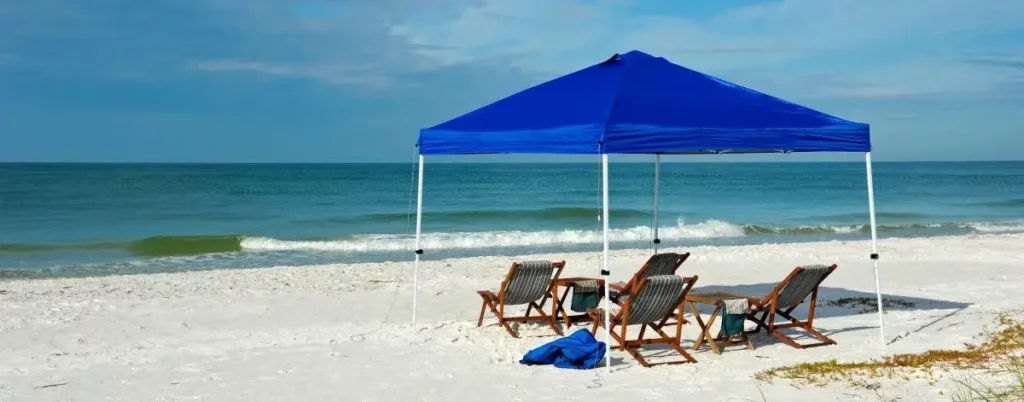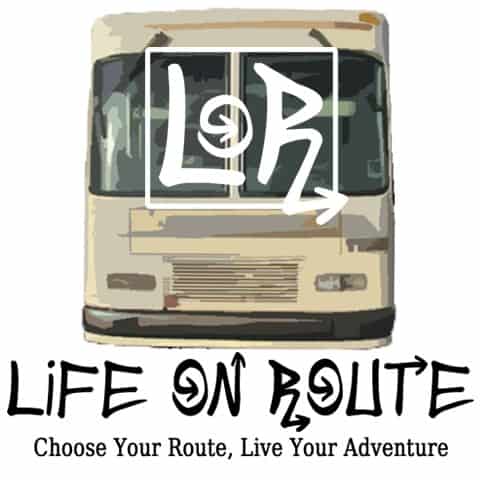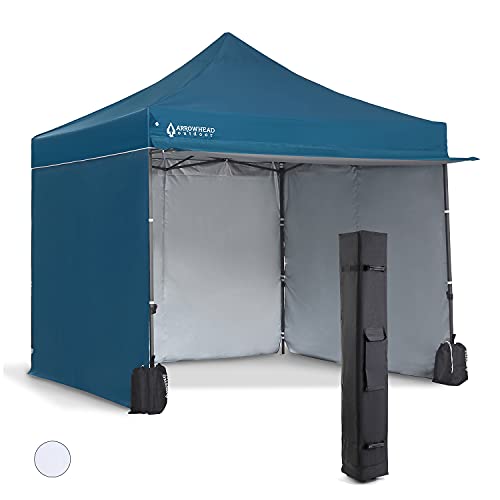This post contains affiliate links.
Pop up canopy tents have replaced the humble beach umbrella everywhere, from family reunions to large festivals. They have become part of the scenery at sports events and campgrounds. The functional space under the canopy provides a shaded area perfect for relaxing on a sunny or rainy day.
It is not recommended to use a grill under a pop up tent because the proximity of the heat source to the roof material can cause it to melt. In addition, inadequate ventilation can cause dangerous carbon monoxide build-up. Other risks include damage to the structure and fire hazard.
Although lighting a grill under a pop up tent is extremely risky, many people still do it. We have examined the risks and the potential danger involved, so before you add flames under your tent, make sure you know enough to take the appropriate safety measures if necessary.

Table of Contents
Risks Of Grilling Under A Pop-Up Tent
Everyone loves the informal open-air, shaded space offered by pop up canopy tents. But if you have been tempted to use one as a food tent and grill under the shade provided, you may want to think again. In the same way, as you probably wouldn’t consider setting up a grill under a tree with low-hanging branches, the same principle should apply to pop up canopy tents.
If you plan to have a grill, boiler or fire around your pop up tent position it outside of the roof cover and down wind from the tent. Doing this prevents the heat, moisture and sparks from collecting under the roof of the canopy.
- [EASY ONE PERSON SETUP] - Central lock mechanism allows for setup with just one person. Simply unpack, extend the legs then pull them apart...
- [SOLID CONSTRUCTION & WHEELED CARRY BAG] – Canopy frame made of durable steel tubing with hammer tone finish. Includes stakes and wires...
- [PUSH-BUTTON LEG HEIGHT ADJUSTMENT] – Easy push-button height settings for every occasion. Never worry about pinching your fingers with...
So while you most certainly can grill under a pop up tent, whether or not you can do so safely is the question. The potential risks of adding an open heat source near any tent or flammable structure can have serious consequences and should be carefully considered before going ahead.
There is a good reason that campfires are always situated far from tents. Enjoying a convenient sheltered covering is quite simply never worth the risk of potentially starting a fire that could endanger everyone around. Anytime fire is involved, safety procedures must always go into hyperdrive, even in outdoor settings.
Let’s look at some potential risks when grilling under a pop up canopy tent.
- It could catch fire
- Heat can cause the material to melt
- Ventilation issues can be a health risk
- The tent may get damaged
- Weather considerations can add to the risks
Grilling Under A Pop Up Tent Can Start A Fire
Although a tent may be rated as fire-resistant, that does not mean that it can’t burn. It simply means that it is coated with a fire retardant material which has rendered it less likely to ignite, or if a spot ignites, fire is less likely to spread. However, the canopy of a pop up tent was primarily designed to provide shelter, not cover open flames or high-intensity heat like from a grill.
Grilling Under A Tent May Melt The Material
The main ingredients in canopy covers are usually polyethylene or polyester, which are forms of plastic. Although most tent material is made from fire retardant fabric, the heat build-up under the tent roof is likely to cause the plastic component to melt. If enough heat builds up, hell-hot liquid drips could form, which would cause injury when they rain down on people below.
In addition, even if the drips of molten plastic don’t drop on a person and cause extreme pain and injury, they have the potential to land on another flammable surface and start a fire. Even dry leaves under the roof can smolder and ignite from a drop of super-heated plastic.
Air Quality Can Be Affected When Grilling Under A Tent
Adequate ventilation beneath a smoke-filled canopy may not seem like a massive concern, but besides fire, it is one of the most serious risks when grilling beneath a structure. While the air quality at the cooking level may be acceptable, carbon monoxide build-up may well be taking place a few feet above the grill’s surface.
For the same reason that no one grills indoors, grilling under a roof area where gasses and smoke can get trapped can be extremely hazardous to your health. Tent fabric is made to allow sufficient ventilation for normal activities like sleeping, but it is not designed to accommodate cooking.
It may feel like there is plenty of space to cook below the top of a pop up canopy tent; however they are usually not high enough to be a safe distance from the cooking surface. Hot gasses from the grill increase condensation in the dome, further limiting ventilation, and harmful carbon monoxide can build up.
Carbon monoxide build-up under an enclosed space like a pop up tent can damage the lungs. The effect would be the same as getting smoke inhalation during a house fire. The only difference is that you may not be as aware of the damage until it is too late. According to Mayo Clinic, the signs of carbon monoxide poisoning may be subtle, but it is life-threatening.
Besides the dome shape of most pop-up canopy tents that usually don’t have vents, another factor that facilitates smoke build-up is that they are often not very high. Hot air and gasses rising off the grill’s surface become trapped inside the canopy, which is often only slightly higher than an average adult.
Grilling Under A Pop Up Tent Can Damage The Tent
Compared to the risk of a fire or smoke inhalation, damaging the tent may seem pretty minor. Most of us want our equipment to last, and grilling under your tent may cause irreparable damage. Meat from the grill usually spatters while cooking, and grease and fat can condense on the fabric.
It’s not only the oil and fat from the cooking process that could stain your tent and affect its waterproof coating. People with greasy fingers repeatedly touching the tent as they move in and out will also cause oil marks and stains that are almost impossible to remove.
Besides possible grease stains and smears, if you go ahead and grill under a canopy tent, keep in mind that the smell of that particular event will remain with you forever. It is nearly impossible to get a fire smell out of tent material without damaging it, and it can be overwhelming, especially when it has been stored for a while.
Your canopy can get damaged and stained from grilling under a pop up tent and so can your outdoor furniture. Here’s my recent article on the best ways to clean your camping chairs and give them a new lease on life.
The Weather Plays A Part When Grilling Under A Tent
One of the worst ideas is to move a grill under a pop up canopy tent because it has started raining. This may seem like the obvious solution to the problem, but it can be a recipe for disaster.
Most pop up canopy tents cannot withstand heavy rainfall, so water may start dripping in through the roof onto your grill. We all know the splattering effect when water hits boiling fats and oil. If it is raining, more people are likely to gather under the tent to shelter. Suddenly having a deluge of water onto a greasy hot surface would be extremely dangerous.
Sudden wind gusts can also be hazardous if grilling under a pop up canopy tent. Although a slight breeze would certainly help with the ventilation inside, unless the tent is securely anchored, a gust of wind could easily tip or lift the entire structure. If any part of the material makes contact with the flame, it could ignite.
Wind can also carry embers or sparks or even just boiling grease from the grill’s surface onto the tent’s material. Even if they don’t start a fire, these bits can burn holes into the tent fabric that will be unsightly and affect the waterproof ability of the tent in the future.
What Precautions Are Needed To Grill Under A Pop Up Tent?
It is never a good idea to grill under a pop up tent. There is a good possibility that something could quickly go wrong, so you won’t be able to enjoy your event because you will need to be constantly vigilant in case of an emergency.
If you are still planning to use a pop up tent to cover your grill, there are a few basic safety precautions that you can take to reduce the risk of something going wrong. However, you will need to remain extremely alert at all times and be ready to take action quickly to avert possible injury or fire.
There are 12 essential safety tips that you must follow to make grilling under a pop up tent a slightly safer undertaking.
Set the height of the tent onto the highest possible setting.
Create as much clearance above the grill’s surface as possible, so the heat rising from the grill can dissipate before reaching the top of the tent.
Use a fire-resistant pop up tent.
Some pop up tents will offer better fire resistance properties than others. Cheaper plastic tents may not provide the same fire resistance as those with NFPA 701 and CPAI-84 certifications which are the two main flame retardancy tests involving tents.
Keep a fire extinguisher handy.
If you must grill under a pop up tent, always prepare for a possible sudden flare-up. Water will not work on a grease fire, so have a fire extinguisher close at hand in case you need it.
Choose a pop up tent with vents in the canopy.
Ventilation is one of the most important factors when grilling under a covered area. Not only will heat rise out, which will reduce condensation on the inside of the fabric, but dangerous carbon monoxide gas can also escape. Pop-up tents don’t usually come standard with vents in the top, so look out for this feature when choosing a tent.
Precook the food to limit the time you need to use the grill.
Keep the cooking time under a tented roof as short as possible. This can be done by pre-cooking the food you plan to serve before placing it on the grill. Grilling can then simply create an atmosphere while browning the food rather than cooking it from scratch.
Anchor the tent securely on all the corners.
Make it a habit to secure the tent’s posts even on fine days. Bad weather can come up suddenly, and you might even forget that the tent wasn’t secured earlier. A sudden gust of wind can lift or tip the tent, which could have disastrous effects if there is a hot grill under it.
Position the grill so fumes go out of the tent.
It may be tempting to position the grill in the center under the highest part of the canopy, but keep in mind that hot air rises and will quickly fill the space between you and the roof material. There are often no vents in pop up canopy tents, so the middle area with your head near the top section may very well be the worst place to be.
Try to position the grill slightly outside the tent or at least near the edge so the fumes can escape quickly. Of course, you need to consider the distance of the nearest tent fabric from the heat, but do not underestimate the danger of hazardous fumes from smoke.
Position the tent far away from any other tents or structures that could ignite.
In the event of the worst-case scenario, ensure that if your canopy tent does catch fire, it will not be able to spread to any other structures or even trees.
Recognize the symptoms of carbon monoxide poisoning.
It can be easy to think that someone has heat stroke or just not feeling well when they could be showing symptoms of carbon monoxide poisoning. Dangerous fumes can quickly become trapped in the top section of a pop up tent. Take all signs and symptoms seriously and seek medical treatment if necessary.
Limit the number of people standing under the tent while grilling.
By keeping the area around the grill clear, you will be better able to act on an emergency should it occur. This also reduces the risk of injury in case of hot condensation dripping off the roof or the structure igniting.
Keep an eye on the weather.
Rain or high wind can change conditions entirely. Pop up canopy tents are not designed to offer long-term rain protection, so they don’t fare well in heavy downpours. Splashes of water onto the hot, fatty surface of a grill can be very dangerous and cause injury.
Do not leave the area.
A fire can start very quickly, and acting quickly will be essential to preventing damage and injuries. If you are the responsible person while the grilling takes place, do not become distracted or leave the tent, even for a few minutes. You will be the one who knows where the fire extinguisher is and what to do in case the structure ignites, so stay close.
Conclusion
It is never recommended to grill under a pop up tent. The lack of ventilation, condensation and even changes in the weather may prove extremely dangerous as tent material is designed to provide shelter and may not withstand the intense heat of grilling. The dangers outweigh the benefits, and the possibility of a fire is not the only potential hazard.

